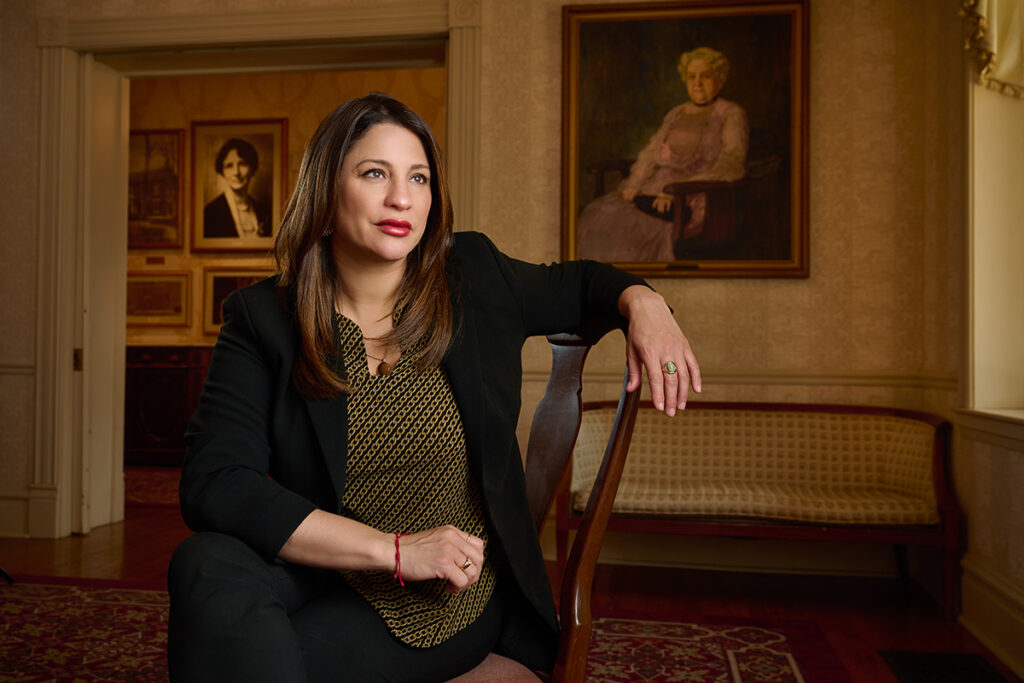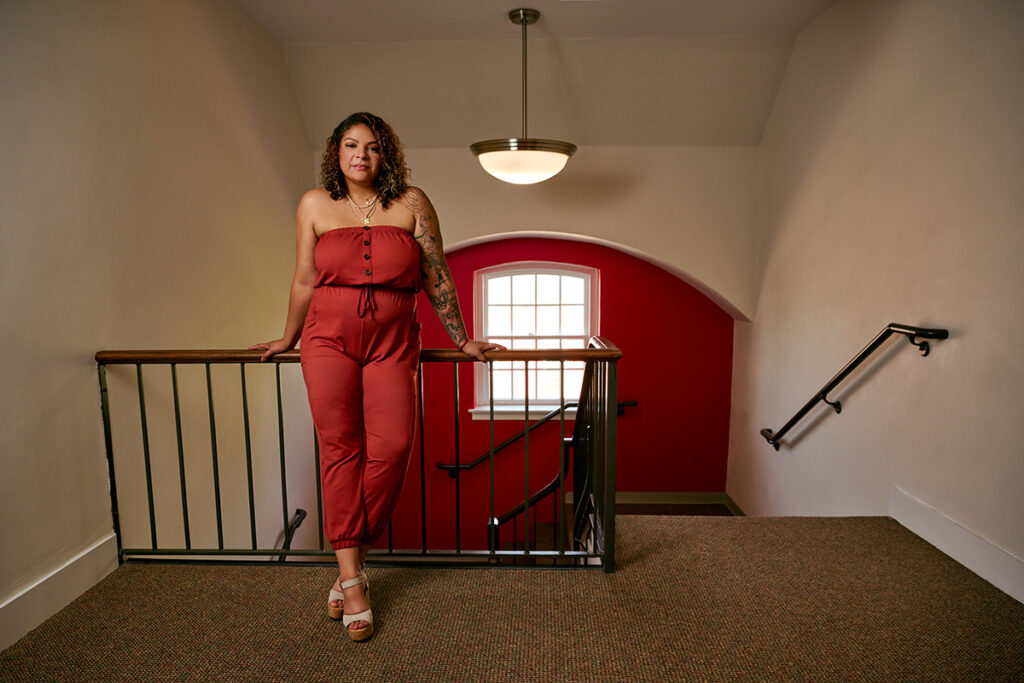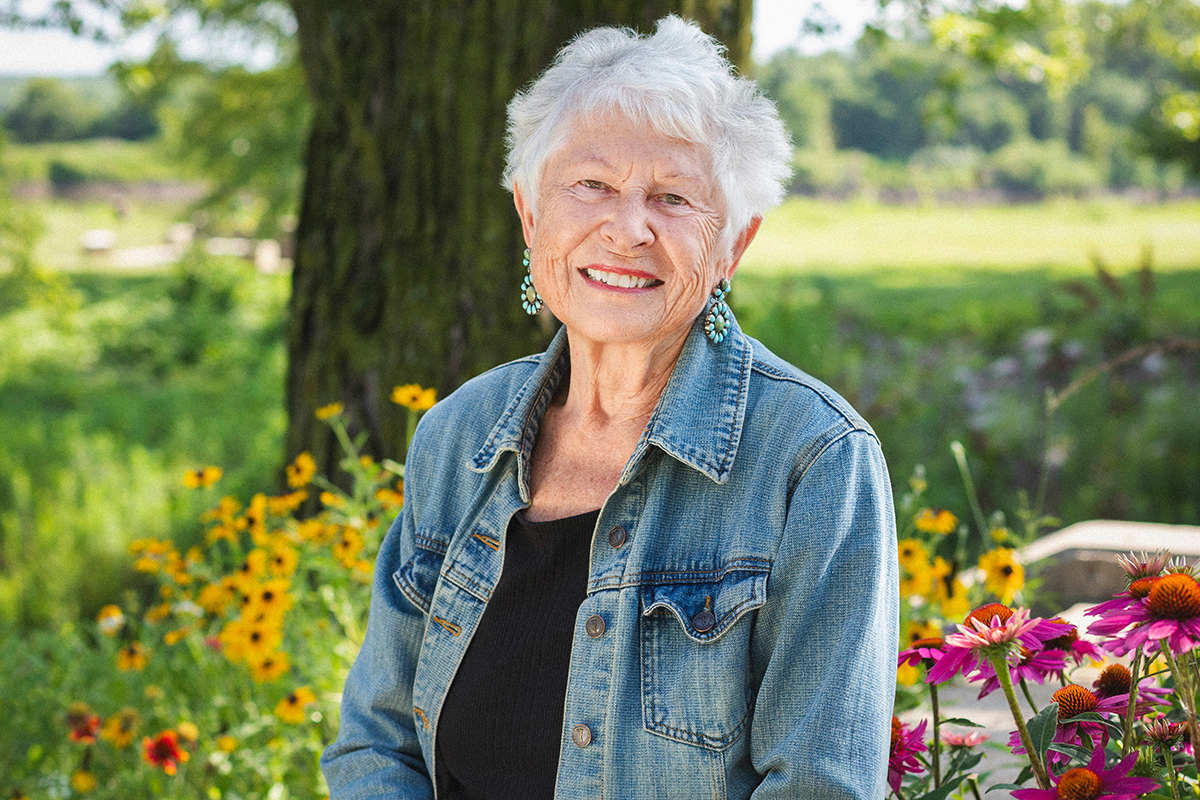Just as the men in her family had, Ashley Cole joined the Air Force, and for a while, she says, everything was perfect.
Cole was going through a difficult time when she decided to enlist. “I come from a family that served in the military, but when I was about twenty-five and going through a divorce, I wondered, if I were to die tomorrow, what kind of legacy would I leave my son?” The Air Force became the answer.
“I was surprised at how at home I felt and how quickly I felt important,” she says. “I loved what I did—the hard work, the successes, the camaraderie. And then I was sexually assaulted by a master sergeant.”
The man had a twenty-year career. Cole says, “I was asked, ‘Do you really want to report this and ruin his career? Why are you making waves?’ But that is the culture.”
For female veterans, serving in the military can be extraordinarily empowering; at the same time, it can be unbearably devastating.
Elizabeth Herrera, executive director of Mission Promise Kept, a comprehensive program at Stephens College in Columbia, Missouri, that aims to get female veterans back on their feet, understands Cole’s story all too well.
“About ten years of researching the trauma female veterans suffer shows it is a very complex issue,” Herrera says. “There is an institutionalized epidemic of inequality, and what is happening in the military is a reflection of society as a whole.”
Herrera, who is also a veteran, says several facts underscore the seriousness of the problem: “Female veterans have the highest risk for homelessness of any segment of the population. They also have greater risk for post-traumatic stress as a result of harassment and sexual assault.”
Oftentimes, women veterans don’t feel worthy or capable of going back to school, Herrera says. They tend to isolate and self-blame. Where men express anger outwardly, Herrera says, women internalize their sadness and anger. “They are reluctant to go to Veterans’ Administration hospitals for care because there is no standard practice for women’s care in most cities.”
Mission Promise Kept is the first college program that empowers women veterans to earn their college degrees, launch their professional careers and attain financial independence.
By coordinating academic, medical, mental health and legal support systems as well as social services and life-skills training, Mission Promise Kept creates opportunities at Stephens College that are unmatched by any other programs for female veterans.
The women pay the standard college tuition and room and board costs, which are offset by their GI benefits and any other scholarships or financial aid they might receive. They do not pay any additional charges for participation in Mission Promise Kept. The students can also receive college credit for prior learning experiences.
Herrera grew up in Puerto Rico, and she faced “an uproar” when she told her family she would be enlisting in the Air Force.
“I have an adventurous spirit,” says Herrera, who was based at Whiteman Air Force Base in Missouri. “The military was where I felt that I had truly become an American. On active duty and in the Reserve and in the National Guard, I learned so much. I don’t think I would be in the position I’m in today if I had not served.”
However, Herrera says, “at Whiteman AFB, my peers were sexually aggressive, and I felt like prey. Latinas are perceived as being more submissive and more easily controlled, and I didn’t know how to destroy the stereotype. How do you tell someone who outranks you not to talk that way to you? I didn’t know how to negotiate the dynamics of power.”
She recalls a required course on what sexual assault is and how to combat it. “The course was led by a female major who was the sexual assault officer, but she made a joke out of the program that was supposed to end harassment,” Herrera says. The officer sped through the course so that “everyone can get out of here and go have a beer.”
Men not taking sexual harassment seriously and women being fearful of reporting it has led to tragedy. Before she was murdered by a fellow soldier at Fort Hood on April 22, 2022, Private First Class Vanessa Guillen told her family about suffering sexual harassment at the hands of the soldier. However, Guillen told them she thought she could handle it and that she didn’t want to make a report. Soon after, she was reported missing and her body was discovered

An independent review of Guillen’s case cited multiple leadership failures at Fort Hood that led to disciplinary measures. Eventually, President Joe Biden signed an executive order establishing sexual harassment as a specific military offense.
The Georgetown Institute for Women, Peace, and Security published a study titled “Culture, Gender, and Women in the Military” that found nearly one in four active-duty women report that they have been sexually harassed. When a superior officer makes sexual comments and overtures, reporting the behavior can be highly problematic, especially for the lowest ranking soldiers.
The study also found that because of the lack of appropriate protective and combat gear, women had higher injury rates. Herrera explains that some women who have had limbs amputated have been given male prosthesis, the only option available to them.
“Women can be treated like second-class citizens there,” Herrera says. “They don’t feel valued.”
When Cole made the decision to report her sexual assault, she was told that the report had to be “open,” meaning everyone would eventually know all the details. Word quickly got around.
“I could have made a private report, but I wasn’t told that a private report was an option,” Cole says. “I felt excluded and pressured. When I applied to re-enlist two months later, my application was denied.”
Herrera says, “It’s a tactic that’s used to force women who aren’t compliant out of the military. People who were supposed to be our comrades and our friends assaulted us.”
After leaving the Air Force, Cole began working for a nonprofit in Columbia, where she met Herrera. “When Elizabeth described Mission Promise Kept and what I could do there, I was so excited. Many veterans don’t have a purpose anymore when they leave the military, and I was afraid of not finding my purpose.
“Coming from the military, I was trained to be a leader,” Cole continues. “I knew I wanted a leadership role. I am majoring in business and will graduate in May of 2024. Stephens evaluated my military experience in the Air Force where we have our own military college, which eliminated two years of coursework for me.”
Students with children have access to Stephens’ on-campus Children’s School and neighborhood public schools, as well as affordable, supportive and coordinated child care. Being part of a network of peers, friends and mentors helps make the challenge of going to college much less daunting. Cole has a ten-month-old daughter and was intimidated at first by the idea of navigating college life.
“I needed help finding classrooms and buying books,” Cole says. “But Stephens walked me through everything. Choosing a direction to go was hard, but everyone was very patient. There was one day I didn’t know whether I could get myself and my daughter ready on time for my 2:30 p.m. class, but my professor told me to come to the 3:30 p.m. class and to bring my baby too. I can give my daughter an amazing experience at Stephens that she couldn’t have anywhere else.”
The historic Columbia Residence Hall at Stephens is the home for female veterans. Its one- and two-bedroom apartments have been newly renovated and are fully furnished. On-site advocates and advisors provide twenty-four-hour support service.
“When I go to class, a sitter comes to my apartment to stay with my baby,” Cole explains. “Many female veterans are hypervigilant and anxious, so an environment like this is absolutely supportive. We feel so safe here.
“It means something to be a Stephens graduate. Stephens has a two hundred year history and an amazing group of alums who can support me. It’s also helped me to realize that as a female veteran, I need to give myself grace.”
Cole smiles and holds up a picture of her daughter. “We all need to do that.”






